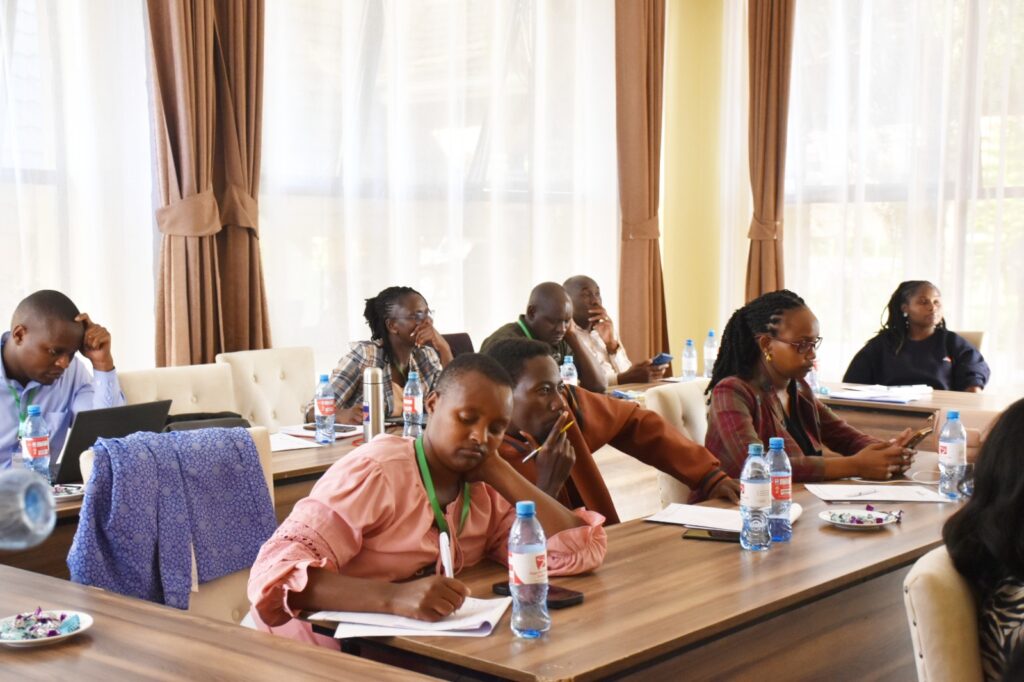
INTERNATIONAL TRAINING ON CLIMATE-SMART FORESTRY
COURSE BACKGROUND
Forests and trees play a crucial role in climate-smart agriculture (CSA) and are vital for food security and ecosystem health. However, climate change deeply impacts forests, and how we manage them affects our ability to adapt and reduce emissions. Understanding this complex relationship and finding ways to manage forests smartly is critical for climate action.
ECAS Institute recognizes the urgent need to integrate climate considerations into forest management. We aim to explore how forests and trees can enhance food security, provide ecosystem services, and support both climate adaptation and mitigation. This course addresses the technical aspects of making forests climate-smart.
This training is designed to help policymakers, practitioners, and specialists understand climate-smart forestry. It will cover key concepts, practical interventions, monitoring, and creating supportive environments for these practices. By enhancing expertise in this area, ECAS aims to contribute to more resilient forests and a healthier global climate.
OBJECTIVES OF THE TRAINING
Upon completion of this training, participants will be able to:
- Explain relevant concepts, especially sustainable forest management, in the context of climate.
- Identify areas of intervention for climate-smart forestry related to livelihoods, food security, vulnerability, resilience, deforestation, and forest degradation.
- Describe the steps needed to integrate a climate-smart forestry approach into the plan and practices of any forest management unit.
- Understand the role of forest monitoring and national forest monitoring systems.
- Identify the elements that can create an enabling environment for the adoption of climate-smart forestry management practices and approaches.
WHAT YOU WILL LEARN
This course explores the role of forests and trees in climate-smart agriculture (CSA), considering ecosystem services, goods, and importance for food security. It delves into the complex relationship between climate change and forests, focusing on adaptation and mitigation benefits, as well as synergies and trade-offs in management. You will learn:
- Relevant concepts, especially sustainable forest management.
- Areas of intervention for climate-smart forestry – livelihoods and food security, vulnerability and resilience and deforestation and forest degradation.
- The steps needed to integrate a climate-smart forestry approach into the plan and practices of any forest management unit.
- The role of forest monitoring and national forest monitoring systems.
- The elements that can create an enabling environment for the adoption of climate-smart forestry management practices and approaches.
DURATION AND PROGRAM
This is a structured training course, composed of four distinct lessons. The program explores the subject matter from a technical perspective, combining expert instruction with case studies and practical considerations relevant to climate-smart forest management. The detailed program schedule, including specific session timings and opportunities for interactive discussions, will be communicated prior to the training commencement.
TARGET PARTICIPANTS
This course addresses the subject matter from a technical perspective. It is designed for a range of stakeholders. Individuals who would especially benefit from taking this course include:
- Policy-makers.
- Development practitioners and programme managers.
- Sectoral specialists and academics.
- Trainers and extension agents.
TRAINING MODULES
The course consists of four key lessons, guiding participants through the principles and practices of climate-smart forestry:
| No | Module | Details | |
| 1. | Introduction to Climate-Smart Forestry |
This module introduces the fundamental concepts of climate-smart forestry, positioning it within the broader context of climate-smart agriculture and sustainable forest management.
|
|
| 2. | Elements of Climate-Smart Forestry |
This module delves into the key areas where climate-smart forestry interventions can be applied, focusing on their impact on livelihoods, resilience, and addressing forest degradation.
|
|
| 3. | Climate-Smart Forestry in Practice |
This module provides practical guidance on how to integrate a climate-smart forestry approach into actual forest management planning and practices.
|
|
| 4. | Creating an Enabling Environment for Climate-Smart Forestry |
This module examines the broader conditions and supportive elements necessary for the successful adoption and scaling up of climate-smart forestry practices.
|
|
TRAINING STYLE
The modules will be taught through PowerPoint presentations, and lectures and will include a case study/field visit, breakout sessions, case studies and other interactive discussion components.
The course will also include a few guest speakers, both in person and via Zoom and other online learning platforms for overseas speakers. This provides useful real-world insights alongside the more theoretical aspects of the course.
The conference faculty shall consist of experienced decision makers, as well as practitioners and representatives from established educational and research institutions active around climate change, engineering and international development. Throughout the course, theoretical presentation of concepts will be moderated and more group discussions and plenary engagements will be optimized. PowerPoint presentations will be made by facilitators and resource persons, to highlight key concepts before embarking on group work.
GENERAL NOTES
- Training manuals and additional reference materials are provided to the participants.
- Upon successful completion of this course, participants will be issued with a certificate.
- We can also do this as a tailor-made course to meet organization-wide needs. Contact us to find out more: info@ecasiafrica.org.
- Payment should be sent to our bank account before the start of training and proof of payment sent to: info@ecasiafrica.org.
ABOUT ECAS INSTITUTE
The ECAS Institute designs and delivers independent and targeted training, research, and consulting services. Our work focusses on climate change and resilience building, carbon markets, renewable energy, nature-based solution, biodiversity conservation, agriculture and food systems, We are located in Nairobi Kenya and work across the African region. We have implemented training and research assignments in Kenya, Tanzania, Uganda, South Sudan, Somalia, Malawi, Rwanda, Congo, and South Africa. Globally, we have supported our partners from the UK, Denmark, Italy, Sweden, Germany, and USA.

